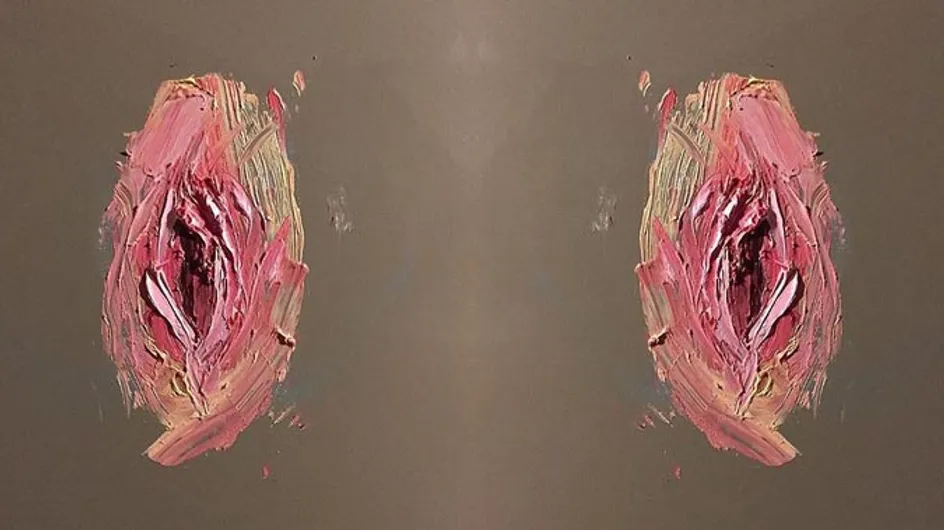For a while now, Mariya Karimjee has been chronicling her experience of growing up within a group of women that went through FGM as part of a tradition in her small Dawoodi Bohra sect of Islam. She has spoken about it on podcast The Heart and wrote about it for The Big Roundtable, and this week it was featured on storytelling podcast giant This American Life.
The event that would propel Mariya on to a very trying and stressful trajectory for the rest of her life happened in 1995 in Karatchi, Pakistan. Taken to her neighbour's house, she was presented with a rust-coloured tarp, stained with blood from the girls before her. This was where her 'operation' would take place. Her mother had told her there was a 'bug' inside of her that needed to be removed, otherwise it would eventually try to escape out of her and crawl inside her brain. So she had it cut off with a blade. That bug was her clitoris.
After the op, Mariya didn't think anymore about it for years. It was only at age 11, when she had moved from Karatchi to Texas and got her hands on a copy of Our Bodies Ourselves, that she began to question the operation she'd had years before. "I was 15 and armed with Our Bodies Ourselves and some internet articles, I thought I knew," she said during the podcast, produced by Ira Glass. But, as she says, it would take her another five years before the magnitude of her operation would truly hit her.
 © Getty
© Getty
"I don’t want you to stop even if I look like it’s hurting me," Mariya told her boyfriend, before the first and only time she had sex. "He grimaced, but I repeated the statement again and then again." By the time her boyfriend of one year had entered her, she was presented with immeasurable pain: "Pain shot up my body. I could feel it in my teeth and in the muscles of my jaw. My insides felt like they were being scraped out by sandpaper. The pain was everywhere; I couldn’t figure out what hurt and where." After allowing herself to cry, Mariya admitted that, because of her operation, she may never be able to experience sexual pleasure.
In Mariya's sect, this would be considered a very successful operation. The removal of the clitoris, also known as a clitorectomy, can be performed legally on occasions, say for cancer patients if the cancer had spread to that area. But for Dawoodi Bohra women, the operation is used to curb sexual desire. Mariya's mother had it, as had her mother. Mariya had to know if there was ever going to be a light at the end of this tunnel.
'“Is sex ever good for you?”' Mariya asked her mother over the phone after her doomed sexual experience. Her mother hesitated then said, "When your father and I first got married, him touching me would light me on fire. But sometimes, if he moved too fast, if he tried something new, that fire just became pain... [but] we figured out a way,”' she answered. When Mariya spoke to her childhood friend in Kiratchi who had also had the same procedure, for This American Life, she said she had asked her mother, "Why do you want to stop me from having casual sex - why not men?"
Female genital mutilation can be performed in a number of different ways leading to different effects on the genitals, but the practice is always an attempt to restrict or control a woman's sexuality. Often it works - a lot of women are unable to gain pleasure from sex after their operations. FGM is largely practiced in NorthEast Africa, but in fact happens across the world. In Egypt, at an NGO-led project to educate people on the effects of FGM, victims of the practice talked about their experience of sex: "I hate it. It hurts. I hate it," says one woman. "It makes women bored in intimate relationships," says another. Despite a ban on all forms of the practice being put in place in 2007, 90 per cent of married women in Egypt have been cut.
Changes are being made, though. When Mariya's brother found out what had happened to her, he began campaigning - against the wishes of many Bohras. He even did a speech at the UN. FGM is something we learn more and more about every day, thanks to the courage of women like Mariya sharing their experiences. At one point, Mariya tells of how she blurted out her story to a college roommate that she wasn't particularly close to. She told her to go see the university gynaecologist - starting the long line of gynos Mariya ended up seeing to discover just what had happened to her. The act of simply talking through her experience with someone had led to a door opening - right into her gynaecologist's office. The women who gathered in Egypt spoke of their experience to raise awareness for FGM and educate others on the practice - a practice that is deeply rooted in gender inequality and archaic ideals of how women should behave.
Because of how vocal Mariya and a small group of women have been about their experiences with FGM, a handful of Dawoodi Bohra clergy around the world started circulating letters saying that cutting was illegal and it should be stopped. "That's what I can do," says Mariya. "That's a new Bhori tradition."
You can listen to Mariya Karimjee on This American Life here.
What did you think of this story? Let us know here: @sofeminineUK
You might also like...
Women Are Sharing Their Earliest Experiences With Sexism Through The #WhenIWas Hashtag
Women Walk Out Of Church In Protest Against Priest's Support Of Abortion Ban
Emma Watson And Malala Yousafzai Are Changing The Face Of Feminism Together


















